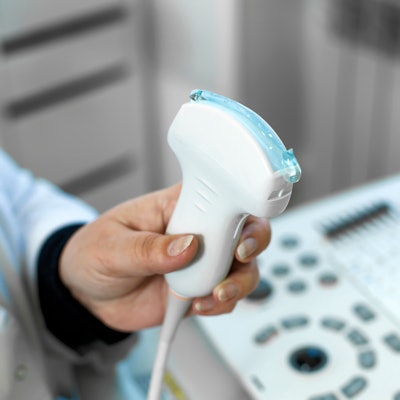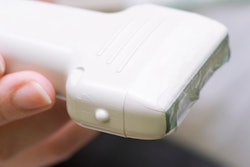
Ultrasound guidance helps shorten cannulation times for extracorporeal cardiopulmonary resuscitation (CPR), according to findings published August 6 in Resuscitation.
Researchers led by Keita Nakatsutsumi from the Tokyo Medical and Dental University Hospital in Japan found that ultrasound guidance led to a decrease in cannulation time by 2.5 minutes compared with conventional cannulation techniques.
"This result should contribute to the development of standard protocols for cannulation in extracorporeal CPR, with the goal of improving outcomes," the team wrote.
Extracorporeal CPR helps bring cardiac arrest patients to treatment, but this requires much technical expertise to apply percutaneous venoarterial extracorporeal membrane oxygenation. Ultrasound guidance is typically used for vascular access, but the researchers pointed out that its effects on cannulation time on these patients are "poorly defined."
Nakatsutsumi and co-authors investigated the effects of real-time ultrasound-guided cannulation for extracorporeal CPR. They used multicenter data from 1,451 cases, of which 510 used ultrasound guidance and 941 were in the control group. The team also evaluated 443 propensity score-matched pairs from the cases.
The researchers found that before matching, cannulation time for ultrasound guidance was 11 minutes, 13 seconds. After matching, the average time was about 11 minutes, while the average time for the control group was about 14 minutes. The researchers reported that these differences were significant in both matched (p < 0.001) and unmatched groups (p = 0.018).
The team also found no significant differences in the incidence of catheter-related complications and incidence of poor neurological outcomes in both groups.
The study authors suggested that, based on their findings and those of previous studies, shortening cannulation time by "even a few minutes" could help improve outcomes for patients with cardiac arrest.
While the team's results did not show significant associations between ultrasound guidance and better survival or neurological outcomes, the authors wrote that "there might be a cohort that could benefit from the time-saving effect of real-time ultrasound-guided cannulation."
Still, the authors called for more studies to determine which factors, in addition to short cannulation time, promote improved neurological outcomes in patients who receive extracorporeal CPR.
The study can be found in its entirety here.




















